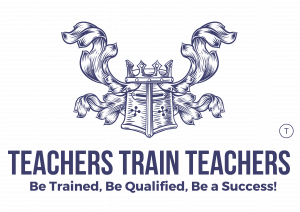Work-life balance is a term that has come to represent the ideal relationship between an individual’s work life and personal life. This concept of balance has grown in recent years as more women have joined the workforce, more men have embraced childcare responsibilities, and new generations have challenged workplace expectations.
Work-life balance is also a topic that has drawn the attention of organizational psychologists responsible for counseling employees on personal matters that could affect their work. It can be challenging to achieve because of several factors, including time constraints, social acceptance, health risks, rewards associated with certain jobs, and employer policies.
Steps to Achieving a Positive Balance between your Work and Personal Life
Achieving a good work-life balance is extremely difficult for most of us. Between the demands of work, family, social commitments, and the seemingly endless list of tasks in our lives (e.g., laundry, grocery shopping, cleaning), it’s easy to feel overwhelmed.
We have numerous obligations and responsibilities, many of which overlap, making prioritizing difficult. Convinced that work-life balance is a myth, we distract ourselves from feeling overwhelmed by whatever comes our way.
So, when we try to focus on our priorities, we may feel guilty for not paying attention to our responsibilities at work and home, but we often don’t know where to start.
The good news is that there are ways that you can achieve a positive work-life balance. Even if you cannot completely eliminate your obligations and responsibilities, you can work to minimize the amount of time and energy you spend on work vs personal life. And while it may seem impossible, it’s possible to create a positive work-life balance.
Following are five tips that will help you develop a work-life balance strategy:
- Prioritize
If you’re feeling pulled in multiple directions, it can be tempting to put all your obligations and responsibilities on your to-do list.
However, this only leads to feeling overwhelmed and losing focus on your priorities. Instead, prioritize your tasks by determining which ones you’ll complete first and which you’ll complete later.
- Eliminate stress
Minimize stress. Stress doesn’t just affect you physically but also your mental health. When you’re stressed, you tend to feel overwhelmed and unable to focus. Stress can cause you to become anxious and depressed, and it can also interfere with your relationships and health.
- Surround Yourself with Positive People
Positive people speak positively, empower others, and lift you when you’re down. They can change your outlook and help you see the bright side of almost any situation. Find these people and surround yourself with them — they’ll be your most valuable asset in everything you do.
- Develop a Support Network
As a teacher, you’re constantly surrounded by colleagues. So, develop a network of colleagues who you can lean on in times of crisis or stress.
- Accept When You’re Not Always Perfect
You aren’t perfect. And that’s okay. Sometimes, your students will disagree with your approach to a lesson or disagree with your assessments. Sometimes, your reviews only partially align with your curriculum, and you’ll make a mistake. It should encourage you to reach the goal.
A positive work-life balance means having a healthy, happy life outside work and not letting your job get in the way of your personal goals and time with family and friends. To find a good work-life balance, you must figure out what is important to you; it takes planning and hard work, but the payoff is worth it.
For more inquiries, feel free to contact us:



